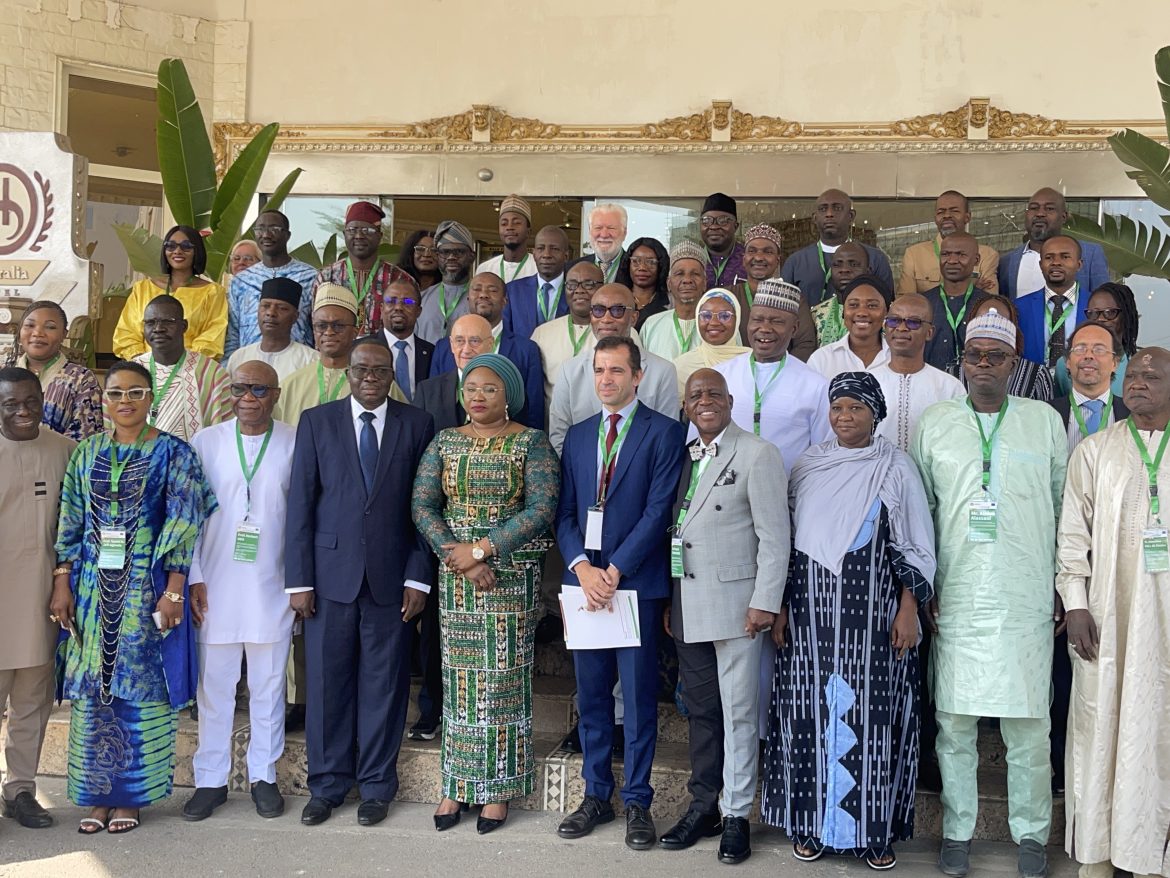In a bid to tackle food insecurity and enhance livestock productivity, the Economic Community of West African States (ECOWAS) has reaffirmed its commitment to strengthening the animal feed industry across the region. The meeting, held under the Research and Innovation Project on Productive, Resilient and Healthy Agropastoral Systems in West Africa (PRISMA), in collaboration with the Federal Ministry of Livestock Development, on Tuesday in Abuja, was aimed at addressing the challenges limiting livestock productivity and designing strategies to boost food security across the region. Speaking at the opening session, the President of the ECOWAS Commission, Dr. Omar Alieu Touray, represented by the Acting Executive Director of the Regional Agency for Agriculture and Food (ARAA), Mr. Konlani Kanfitin, said the livestock sector occupies a central place in the economies of member states, contributing significantly to food security, job creation, and rural livelihoods.
He said that the sector’s growth is still hampered by the limited availability, quality, and high cost of animal feed. Kanfitin noted that the PRISMA project, co-financed by the European Union (EU) and the Spanish Cooperation Agency (AECID), has recorded notable progress in the subregion. He said, “Its development remains hindered by a major constraint; the availability, quality, and cost of animal feed. We have conducted studies on the establishment of feed supply centers, developed online purchasing applications, and prepared harmonized protocols for animal feed analysis,” he said, adding that the efforts will make the ECOWAS Regional Food Security Reserve more effective in crisis management. Representing the Honourable Minister of Livestock Development, Mr. Edi Muktambe, the Permanent Secretary, Mrs. Chinyere Akujobi, commended ECOWAS for selecting Nigeria to host the workshop, describing it as a timely intervention for the sustainable transformation of the livestock system. She appreciated President Bola Ahmed Tinubu for creating the Ministry of Livestock Development, noting that the decision reflects his belief in the strategic relevance of the livestock sector to national growth and economic stability.
Mrs. Akujobi identified the lack of industrial infrastructure, dependence on imported inputs, and climate variability as major constraints affecting livestock productivity in the region. She further explained that Nigeria’s National Livestock Growth Acceleration Strategy (NLGAS) 2025–2035 aligns with regional efforts to promote local feed production and strengthen the livestock value chain. She said; “Animal feed accounts for a significant portion of animal production costs. The lack of industrial infrastructure, dependence on imported inputs, climate variability, and insufficient regional coordination limit the competitiveness of this sector.
“A strong local and regional animal feed industry will not only create jobs, it will reduce dependence on imports and, above all, strengthen food sovereignty in our region,” she stated. The Permanent Secretary also emphasized the need for measurable planning and accountability in livestock development projects. We want to speak with numbers. If you say you’ve done A, we want to see evidence that you’ve done A. Our objectives must be SMART — specific, measurable, achievable, realistic, and time-bound,” she said. Also speaking, the General Coordinator of the Spanish Cooperation Office in Nigeria and with ECOWAS, Mr. Santiago Ormeño García, reaffirmed Spain’s partnership with ECOWAS and the Nigerian livestock ministry to make feed and fodder more accessible to herders. He said that improved access to livestock feed could help reduce conflicts and promote peace in affected areas.
In his remarks, Agricultural engineer and researcher with the PRISMA project, Dr. Fernando Escribano, urged stakeholders to drive change at both institutional and personal levels. “We need to make a change on a personal scale, not just institutional,” he said, while also calling for greater inclusion of women and youth in livestock innovation. The workshop, is expected to produce a regional roadmap for developing the animal feed industry, promoting public-private partnerships.
Trending Now
Home Economy ECOWAS, FG moves to promote food security in West Africa, strengthen animal feed industry

